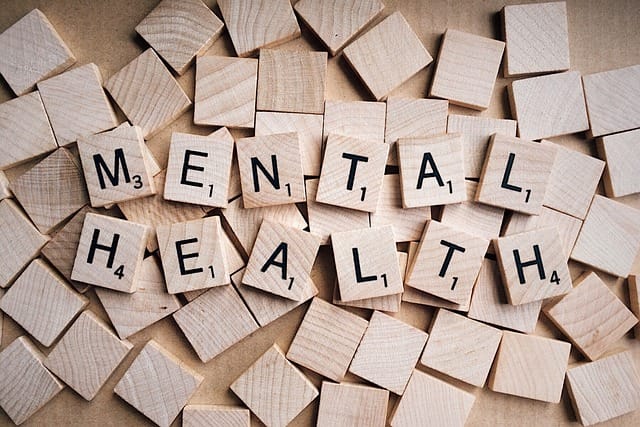Improve your mental health is a goal that many people aspire to achieve, yet it often feels daunting in our fast-paced, demanding world. Mental health is crucial not only for emotional well-being but also for physical health, relationships, and overall quality of life. It’s essential to recognize the importance of mental health and take proactive steps to foster a healthier mind.
In this comprehensive guide, we will explore ten proven strategies to improve your mental health. From developing healthy habits to seeking professional support, each method will be discussed in detail to help you understand how it can contribute to your mental well-being. By incorporating these strategies into your daily life, you can make significant strides toward enhancing your mental health.
Let’s delve into the strategies that can help you improve your mental health effectively.
Understanding Mental Health
Before exploring ways to improve your mental health, it’s important to understand what mental health encompasses. Mental health refers to your emotional, psychological, and social well-being. It affects how you think, feel, and act in everyday life. It also influences how you handle stress, relate to others, and make choices.
The Importance of Mental Health
Improving your mental health can lead to enhanced quality of life. Good mental health can boost your productivity, improve relationships, and foster resilience against life’s challenges. When your mental health is prioritized, you are more equipped to handle stress, work productively, and enjoy social interactions.
Common Mental Health Challenges
Many people face mental health challenges, such as anxiety, depression, stress, and emotional fatigue. Understanding these challenges is the first step toward improvement. Recognizing symptoms and seeking appropriate methods can help you take control and improve your mental health.
1. Practice Mindfulness and Meditation
One of the most effective ways to improve your mental health is through mindfulness and meditation. These practices encourage a state of awareness and acceptance, allowing you to observe your thoughts and feelings without judgment.
Benefits of Mindfulness
Mindfulness practices can help reduce stress, improve concentration, and enhance emotional regulation. Regular mindfulness meditation can lead to greater awareness of your mental processes and improve your overall mental health.
How to Get Started
To improve your mental health through mindfulness, start with just a few minutes each day. Use guided meditation apps or find online resources that can lead you through the process. Gradually increase your practice time as you become more comfortable.
Advanced Mindfulness Techniques
Once you have established a basic mindfulness practice, consider exploring advanced techniques such as body scans, loving-kindness meditation, or mindfulness in motion, such as tai chi or yoga. These methods can deepen your practice and enhance your mental health further.
2. Engage in Regular Physical Activity
Physical activity is not only beneficial for your physical health but also plays a significant role in improving your mental health. Exercise releases endorphins, often referred to as “feel-good” hormones, which can boost your mood.
Types of Exercise
You don’t have to engage in rigorous workouts to reap the benefits. Activities such as walking, yoga, dancing, or swimming can all improve your mental health. The key is to find something you enjoy and make it a regular part of your routine.
Setting Realistic Goals
To improve your mental health through exercise, set achievable goals. Aim for at least 30 minutes of moderate activity most days of the week. Consistency is more important than intensity when it comes to reaping mental health benefits.
Incorporating Exercise into Your Daily Routine
Consider integrating physical activity into your daily routine. This could be taking the stairs instead of the elevator, walking or biking to work, or incorporating short bursts of activity throughout your day. Small changes can lead to significant improvements in your mental health.
3. Foster Social Connections
Building and maintaining social connections can significantly improve your mental health. Human beings are social creatures, and positive relationships can provide emotional support and reduce feelings of isolation.
Importance of Support Systems
Surrounding yourself with supportive friends and family members can help you navigate life’s challenges. Sharing your feelings and experiences with others can also provide valuable perspectives that improve your mental health.
How to Strengthen Connections
To improve your mental health through social connections, consider reaching out to friends or joining community groups. Engaging in social activities, volunteering, or participating in clubs can help you meet new people and strengthen existing relationships.
Virtual Connections
In today’s digital age, virtual connections can also play a vital role in fostering relationships. Social media platforms and online communities can provide opportunities for connection, especially for those who may have difficulty meeting in person. However, it’s essential to be mindful of your online interactions and prioritize positive engagements that support your mental health.
4. Prioritize Sleep Hygiene
Quality sleep is essential for good mental health. Poor sleep can exacerbate mental health issues and lead to increased stress and anxiety. Prioritizing sleep hygiene can significantly improve your mental health.
Creating a Sleep-Friendly Environment
To improve your mental health, establish a bedtime routine that promotes relaxation. Keep your sleeping environment cool, dark, and quiet. Avoid screens before bedtime, as blue light can interfere with your sleep cycle.
Establishing a Sleep Schedule
Aim for 7-9 hours of sleep each night. Consistency in your sleep schedule can enhance the quality of your rest and improve your mental health. Wake up and go to bed at the same time each day, even on weekends.
The Importance of Napping
If you find it difficult to get enough sleep at night, consider incorporating short naps into your day. A 20-30 minute nap can help recharge your mind and improve your overall mental health without interfering with nighttime sleep.
5. Seek Professional Help When Needed
Sometimes, the best way to improve your mental health is to seek professional help. Therapists, psychologists, and counselors can provide guidance and support tailored to your specific needs.
Types of Professional Support
Various therapeutic approaches, including cognitive-behavioral therapy (CBT), talk therapy, and support groups, can help you address mental health issues. These professional resources can provide coping strategies and help you process your emotions.
Overcoming Stigma
It’s essential to recognize that seeking help is a sign of strength, not weakness. Many people benefit from professional support, and doing so can be a critical step in improving your mental health. Remember, mental health professionals are trained to help you navigate your feelings and experiences without judgment.
6. Develop Healthy Coping Strategies
Coping strategies are essential for managing stress and emotions. Developing healthy coping mechanisms can significantly improve your mental health, allowing you to navigate life’s challenges more effectively.
Identifying Unhealthy Coping Mechanisms
Common unhealthy coping strategies include substance abuse, avoidance, and overreacting to stress. Recognizing these behaviors is the first step toward developing healthier alternatives.
Building Healthy Alternatives
To improve your mental health, focus on constructive coping strategies such as journaling, talking to a friend, or practicing relaxation techniques. These alternatives can help you manage stress more effectively.
The Role of Creative Outlets
Engaging in creative activities, such as writing, painting, or playing music, can also serve as a healthy coping mechanism. These outlets allow you to express your emotions and can be a therapeutic way to improve your mental health.
7. Maintain a Balanced Diet
Nutrition plays a critical role in mental health. A balanced diet can support cognitive function, regulate mood, and contribute to overall well-being.
Foods That Boost Mental Health
Certain foods are known to improve mental health. Omega-3 fatty acids, found in fish, walnuts, and flaxseeds, have been shown to enhance mood. Similarly, fruits and vegetables rich in vitamins and antioxidants can support brain health.
Meal Planning for Mental Health
To improve your mental health, consider planning your meals to include a variety of nutrients. Aim for a diet rich in whole foods, lean proteins, and healthy fats. Hydration is also vital—ensure you drink plenty of water throughout the day.
Understanding Food-Mood Connections
Research has shown that what you eat can significantly impact your mood and mental health. Pay attention to how different foods affect your emotions and energy levels, and consider making adjustments to support your mental well-being.
8. Set Realistic Goals
Setting realistic goals can provide direction and purpose, which are essential for improving your mental health. Goal-setting helps you break down tasks into manageable steps, reducing feelings of overwhelm.
Short-Term vs. Long-Term Goals
Establish both short-term and long-term goals to create a balanced approach. Short-term goals provide immediate gratification, while long-term goals offer a sense of achievement over time.
Celebrating Achievements
To improve your mental health, celebrate your achievements, no matter how small. Recognizing your progress can boost your self-esteem and motivation. Consider keeping a journal to document your achievements and reflect on your growth.
Adjusting Goals as Necessary
Remember that it’s okay to adjust your goals based on your circumstances. Life can be unpredictable, and being flexible in your goal-setting can help you maintain a positive outlook and improve your mental health.
9. Engage in Hobbies and Interests
Pursuing hobbies and interests is an excellent way to improve your mental health. Engaging in activities that bring you joy can provide a sense of accomplishment and relaxation.
Finding Your Passion
Take the time to explore new activities or revisit old hobbies. Whether it’s painting, gardening, or playing a musical instrument, finding a passion can significantly enhance your mental well-being.
Scheduling Time for Hobbies
To improve your mental health, prioritize time for your hobbies. Set aside dedicated time each week to engage in activities you enjoy, allowing yourself to unwind and recharge.
The Benefits of Learning
Engaging in new hobbies also stimulates your brain and encourages personal growth. Learning new skills can boost your self-esteem and enhance your mental health by providing a sense of accomplishment.
10. Practice Gratitude
Practicing gratitude can have a profound impact on your mental health. Acknowledging the positive aspects of your life can shift your mindset and improve your overall outlook.
Benefits of Gratitude
Studies have shown that gratitude can enhance psychological well-being, increase resilience, and improve relationships. Regularly reflecting on what you are thankful for can lead to lasting positive changes.
How to Cultivate Gratitude
To improve your mental health through gratitude, consider keeping a gratitude journal. Write down a few things you are grateful for each day, focusing on both big and small blessings in your life.
Sharing Gratitude with Others
Expressing gratitude to others can strengthen relationships and improve your mental health. Take the time to thank friends, family, or colleagues for their support, and cultivate a culture of appreciation in your life.
Conclusion
Improve your mental health is a journey that involves understanding, effort, and commitment. By implementing the ten strategies outlined in this guide, you can take significant steps towards achieving a healthier mind. Remember that progress takes time, and it’s essential to be patient with yourself.
Prioritizing mental health is just as crucial as physical health. Whether through mindfulness, exercise, social connections, or professional support, every effort you make contributes to your overall well-being. Embrace these practices, and you will gradually find yourself on a path to a more fulfilling and balanced life. With consistent effort and a commitment to






